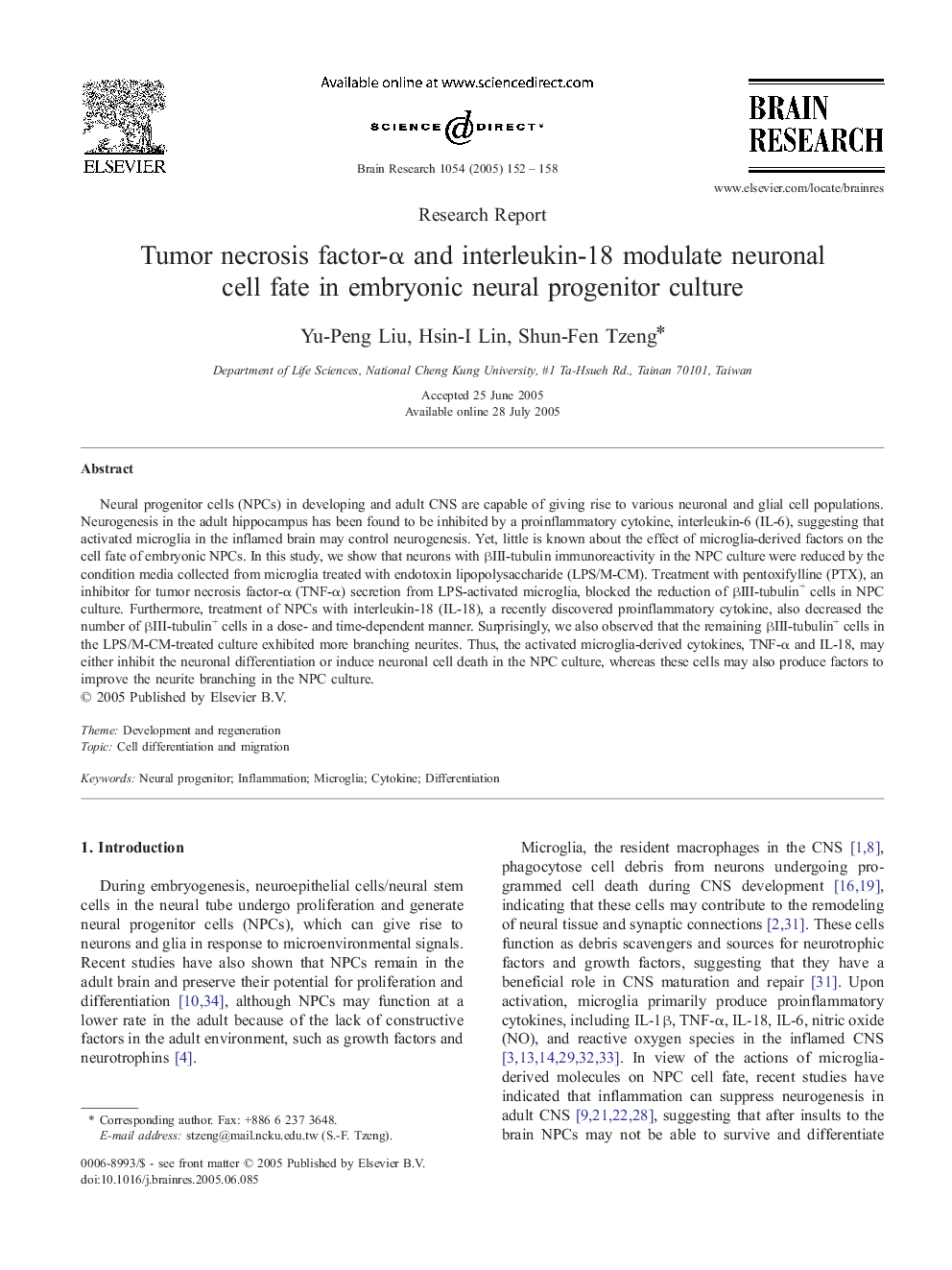| کد مقاله | کد نشریه | سال انتشار | مقاله انگلیسی | نسخه تمام متن |
|---|---|---|---|---|
| 9415855 | 1292946 | 2005 | 7 صفحه PDF | دانلود رایگان |
عنوان انگلیسی مقاله ISI
Tumor necrosis factor-α and interleukin-18 modulate neuronal cell fate in embryonic neural progenitor culture
دانلود مقاله + سفارش ترجمه
دانلود مقاله ISI انگلیسی
رایگان برای ایرانیان
کلمات کلیدی
موضوعات مرتبط
علوم زیستی و بیوفناوری
علم عصب شناسی
علوم اعصاب (عمومی)
پیش نمایش صفحه اول مقاله

چکیده انگلیسی
Neural progenitor cells (NPCs) in developing and adult CNS are capable of giving rise to various neuronal and glial cell populations. Neurogenesis in the adult hippocampus has been found to be inhibited by a proinflammatory cytokine, interleukin-6 (IL-6), suggesting that activated microglia in the inflamed brain may control neurogenesis. Yet, little is known about the effect of microglia-derived factors on the cell fate of embryonic NPCs. In this study, we show that neurons with βIII-tubulin immunoreactivity in the NPC culture were reduced by the condition media collected from microglia treated with endotoxin lipopolysaccharide (LPS/M-CM). Treatment with pentoxifylline (PTX), an inhibitor for tumor necrosis factor-α (TNF-α) secretion from LPS-activated microglia, blocked the reduction of βIII-tubulin+ cells in NPC culture. Furthermore, treatment of NPCs with interleukin-18 (IL-18), a recently discovered proinflammatory cytokine, also decreased the number of βIII-tubulin+ cells in a dose- and time-dependent manner. Surprisingly, we also observed that the remaining βIII-tubulin+ cells in the LPS/M-CM-treated culture exhibited more branching neurites. Thus, the activated microglia-derived cytokines, TNF-α and IL-18, may either inhibit the neuronal differentiation or induce neuronal cell death in the NPC culture, whereas these cells may also produce factors to improve the neurite branching in the NPC culture.
ناشر
Database: Elsevier - ScienceDirect (ساینس دایرکت)
Journal: Brain Research - Volume 1054, Issue 2, 30 August 2005, Pages 152-158
Journal: Brain Research - Volume 1054, Issue 2, 30 August 2005, Pages 152-158
نویسندگان
Yu-Peng Liu, Hsin-I Lin, Shun-Fen Tzeng,